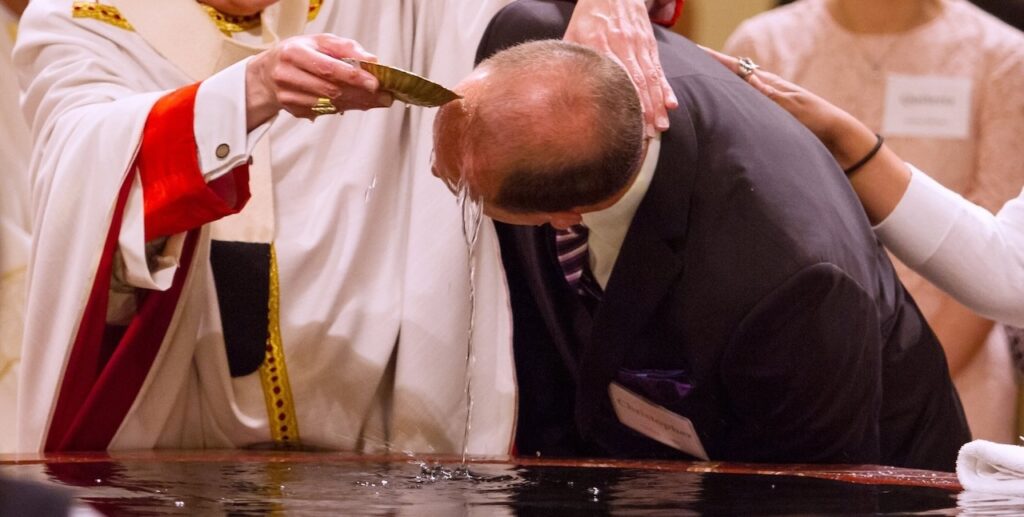PARIS (OSV News) — Over 12,000 people, both adults and adolescents, were baptized in France on Easter — a record number in the country that experiences what many Church leaders have called an accelerated “de-Christianization.”
Requests for adult baptisms have been on the rise in France for the past 10 years. In a report released just before Easter, representatives from the French bishops’ conference pointed out that the trend is present in almost all of the dioceses in France.
According to the report, 7,135 adults were to receive the sacrament of baptism during the Easter Vigil — a number that totaled 31% more than in 2023. While in 2023, 23% of newly baptized were between the ages of 18 and 25, that number had risen to 36% in 2024.
In addition, over 5,000 teenagers aged 11 to 17 were baptized this Easter — 50% more than in 2023. To accommodate these numbers, new teams of catechists had to be formed to help the catechumens prepare for entry into the church.
“In today’s French society, 80% of young people have not received any religious education,” Father Vincent Breynaert, director of the national Youth and Vocations Service, explained in the report presented March 27. “They have very few preconceived ideas about the Church. What those asking for baptism have in common is that they had a spiritual experience and a personal encounter with Christ,” he wrote.
“Some say they were touched by the beauty of a liturgy (they happened to attend), the soothing silence of a church, a testimony of a friend,” Father Breynaert said. “They are thirsty for formation, reference points, fraternity and a sense of belonging.”
The increase in requests for baptisms is noticeable in bigger cities. In the Paris region, the number of adults baptized is 27% higher in 2024 than in 2023. The same phenomenon can be seen in rural dioceses, where the shortage of priests is becoming increasingly acute.
The church provinces where baptism requests have increased most in 2024 are Besançon, Dijon and Clermont — all predominantly rural. People from working-class backgrounds represent the majority of the baptized.
Although a large majority of adult catechumens come from families of Christian tradition, this number decreases each year (61% in 2024, and nearly 69% in 2023), while people declaring themselves “from families without religion” are increasing significantly— they now represent a quarter of adult catechumens.
In addition, around 5% of newly baptized Christians come from Muslim families.
For Bishop Olivier Leborgne of Arras, president of the Council for Catechesis and the Catechumenate, the movement to ask for baptism is observed “on a bewildering scale,” and “it is very surprising to see the often totally unexpected path taken by those who ask to be baptized.”
“They come with a lot of energy,” he said.
During a press conference that accompanied the release of the report, Jean-Yves Lépine, baptized in 2023 in the Diocese of Versailles, said that the decision came because of the people he met. “It is clearly the encounters,” he said, which include “attentive priests, a joyful and dynamic parish community. Through them, I discovered an open and welcoming Church, and extremely diverse!”
He said for him being part of the Catholic Church is “to experience that good is better than goods.”
The influx of catechumens, even if a record one, is far from sufficient to compensate for the drop in the number of infant baptisms, which continues to decline. Nevertheless, Bishop Leborgne found that Easter night in France was “particularly festive in many Catholic communities” in 2024.
“In a rapidly changing world, often disorientated, and a Church that is no less so, it could be that the Lord has decided to take the lead,” he concluded.

